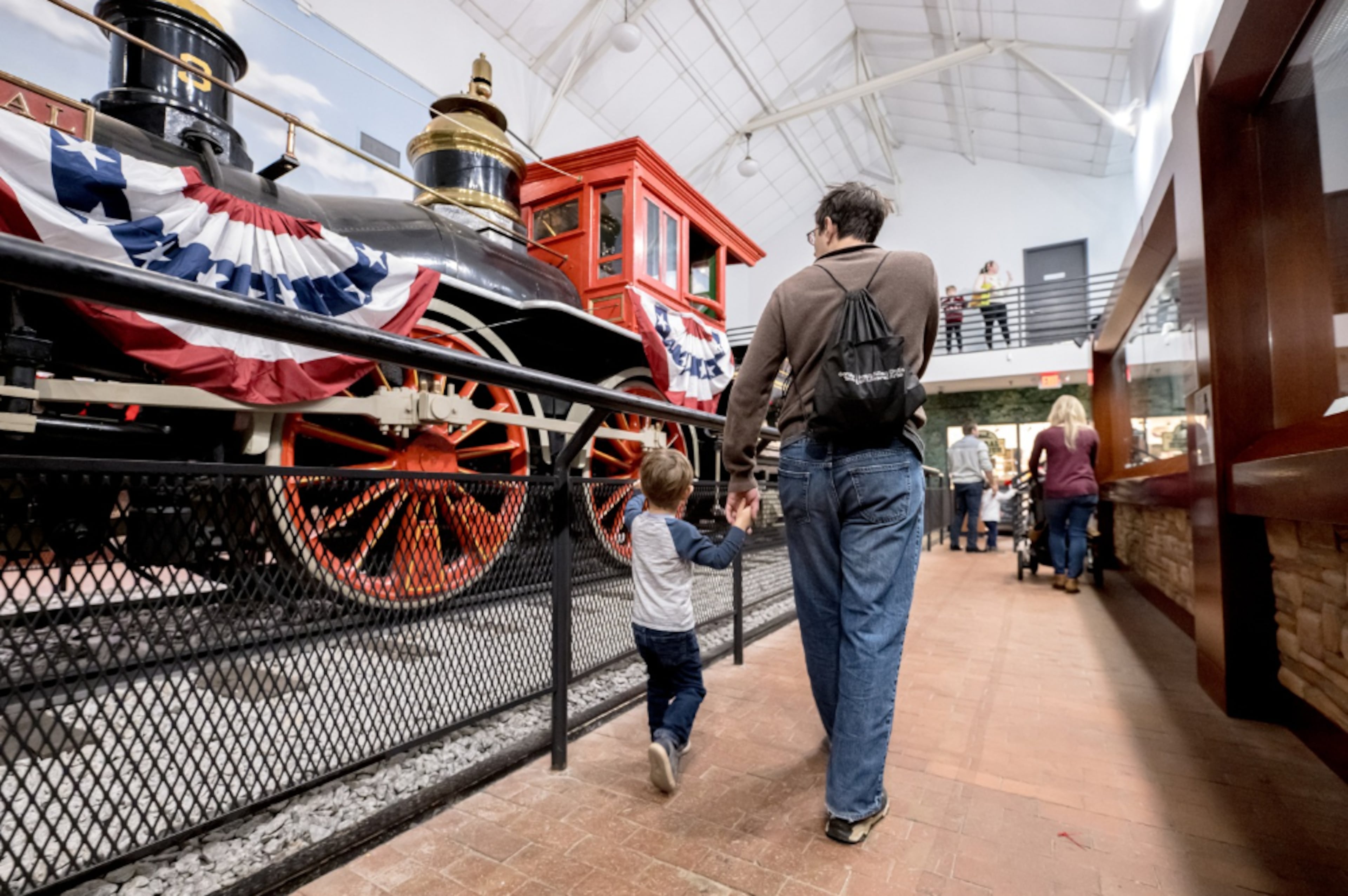‘Uncle Sam Wants You!’ Atlanta History Center exhibits WWI posters

A new exhibit at the Atlanta History Center features some fearful characters.
In one image, a hulking figure looms over a ruined landscape, his gory hands grabbing, his bayonet dripping blood, his dark face glowering out of a World War I-era poster, which bears the legend “Beat back the Hun with Liberty Bonds.”
Another “Hun” with a pointy-topped “pickelhaube” helmet drags a long-haired girl toward an uncertain fate in another poster that intones: “Remember Belgium.”
The time was 1917 and the world was coming apart. Germany had trampled Belgium, and all of Europe was caught up in war. With the sinking of U.S. ships in the North Atlantic, President Woodrow Wilson reluctantly agreed to send troops abroad.
The challenge was getting the American public to join the fight.
“The sentiment was, ‘Why should we be shedding blood for a dying monarchy?’” said Kevin Edmiston, curator of the new exhibit, “Uncle Sam Wants You!: World War I and the American Poster.”
To help overcome the voice of isolationism, the government drafted the most talented illustrators of the day. The posters they created were powerful and persuasive acts of political theater, not to mention out-and-out propaganda, but they were also marvelous works of art. Then they disappeared.

The problem was that they were printed on cheap paper and often glued to walls, rather than tacked or pinned, said Walton Rawls, the author of “Wake Up, America! World War I and the American Poster.” “Once any part of the poster was stuck to the wall, it was going to stay there.”
See a slideshow of the posters at the history center
Even the most famous of the posters, in which Uncle Sam points directly at the viewer and declares “I Want You,” is hard to find. (The History Center used a reproduction for this display.)
Luckily for Atlanta, Rawls, a collector, whose book is the authoritative work on the topic, also happens to be a resident of Buckhead, and has loaned 48 of his posters for the exhibit.
The exhibit also displays three-dimensional artifacts from the center’s own collection, including uniforms and a grotesquely outsized WWI-era anti-tank German rifle.
RELATED: Memorial Day 2017: These Georgia museums are free for military families all summer
"Uncle Sam Wants You!" is one of several exhibits at the History Center focused on the centennial of the U.S. entry into the "war to end all wars."
It’s an appropriate display to visit as we approach the holiday to honor those who gave their lives for their country.

The exhibit shows how ugly stereotypes of the German foe and uplifting calls for unity and strength worked to galvanize support for a conflict that took 117,000 American lives — 26,000 in a single battle. Many of the illustrators came from the world of advertising and fine art. Among them:
- James Montgomery Flagg, creator of the lasting image of Uncle Sam, which he based on a caricature developed by his predecessor, political cartoonist Thomas Nast. Flagg used himself as a model, after donning a beard, wig and top hat, and his emphatic brow and beaked nose became America personified.
- Charles A. Gibson, creator of the "Gibson Girl," also directed the Division of Pictorial Publicity, a part of the federal Committee of Public Information. In addition to painting persuasive images, he was responsible for recruiting other artists to serve — pro bono — in the war effort.
- Howard Chandler Christy's subtly seductive female figures were successors to Gibson's chaste pinups, and Christy used their allure to garner support on the home front. One of Christy's posters features an idealized "Columbia" in a translucent white dress, holding the flag aloft, and pleading for financial support for the effort: "Fight or Buy Bonds."
- Joseph Christian Leyendecker was born in Germany but immigrated to the U.S. as a child. He painted hundreds of covers for the Saturday Evening Post and created the square-jawed Arrow Collar man, but his posters also promoted war-related causes, urging citizens to buy bonds and to economize so that the troops might flourish.
One of Leyendecker’s posters featured in the exhibit urges the public to purchase their coal in the summer to free up wintertime supplies. It’s an arcane concept, but his image of a muscular laborer, shoveling coal from the back of a horse-drawn wagon, is all vigor and action.
“It’s just a beautiful painting itself,” said Rawls, who names it one of his favorites. “The composition, the colors, the strength of the man, the beautiful horse,” all make the image unforgettable.
EXHIBIT PREVIEW
“Uncle Sam Wants You!: World War I and the American Poster”
Through Dec. 3. 10 a.m.-5:30 p.m. Mondays-Saturdays; noon-5:30 p.m. Sundays. $16.50; seniors and students: $13; children: $11. Atlanta History Center, 130 W. Paces Ferry Road NW, Atlanta. 404-814-4000, www.atlantahistorycenter.com.


